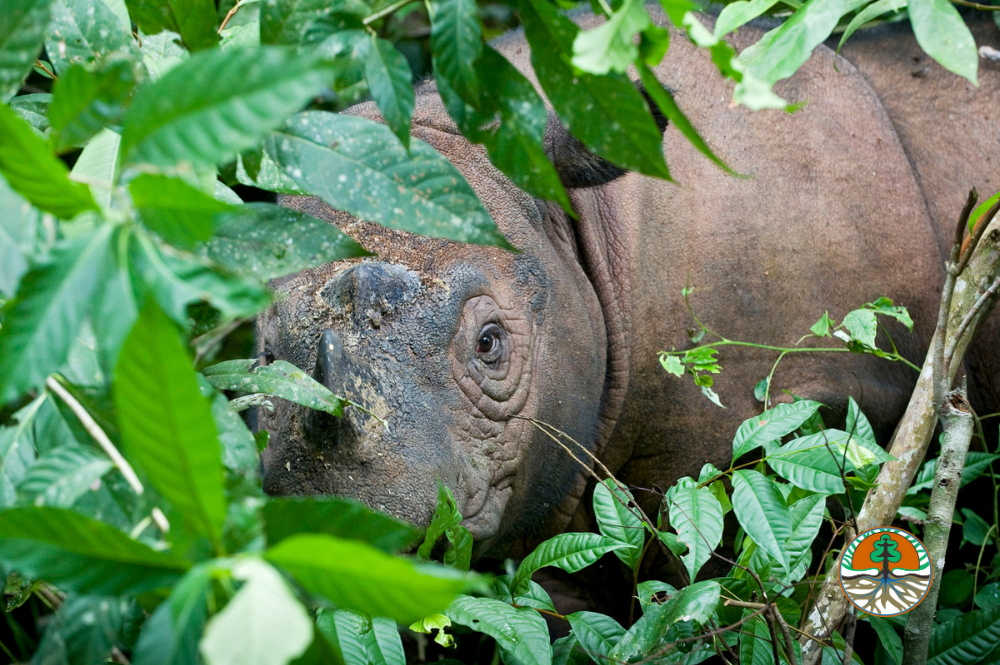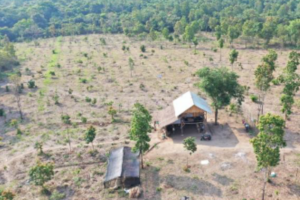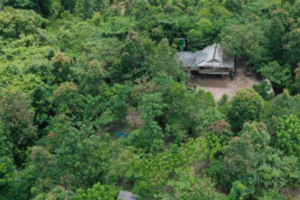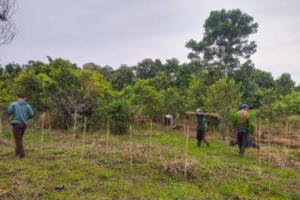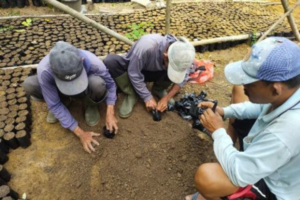Sumatran rhinos love forests. For the last individuals remaining in the wild, the forest is a refuge. Wild rhinos spend their time surrounded by dense tropical vegetation, hidden from the people that live and work around the edges of their forest home.
Over decades, the boundaries of the Sumatran rhinos’ habitat have shrunk, reducing the rhinos’ range and – in addition to other threats – limiting their ability to find mates and breed. As human settlements have grown and people have looked for ways to earn a living and feed their families, the edges of the forest have been encroached upon, degrading healthy forest and bringing people closer to the rhinos than ever before. In Way Kambas National Park, around one third of the suitable habitat was lost.
Thankfully, with support, stewardship and security from local people, the National Park Authority and the Indonesian Government, the landscape is being rejuvenated, benefiting the communities living in and around the Park, as well as the wildlife that needs it to survive. This community reforestation is making a difference.
Rawa Kidang is one site within Way Kambas where people are championing restoration activities. Earlier this year, community members prepared more than five hectares of land to be planted, fixed thousands of stakes to support young plants as they grow, and planted more than 13,000 indigenous seeds to support rhinos and other wildlife in the area.
Protecting the replanted site is crucial. During the dry season, forest fires can be devastating for people and wildlife and can undo the progress made. Overnight, a field team stays on alert, ready to act to prevent the spread of a fire before it’s too late.
Since 2020, thanks to the dedication of many individuals, Rawa Kidang has changed dramatically. Where people have provided careful management and protection, thick canopy now covers previously damaged land, creating more food and room for rhinos and other endangered wildlife. And local people benefit from the positive impacts of living near an increasingly diverse, healthy and resilient ecosystem, and from rising eco-tourism in the area.
With more support for community reforestation activities, the Rawa Kidang project – alongside others – can continue. To help people plant more trees and restore more of Way Kambas National Park, donate to our Christmas appeal, Room to Rhino, today.









